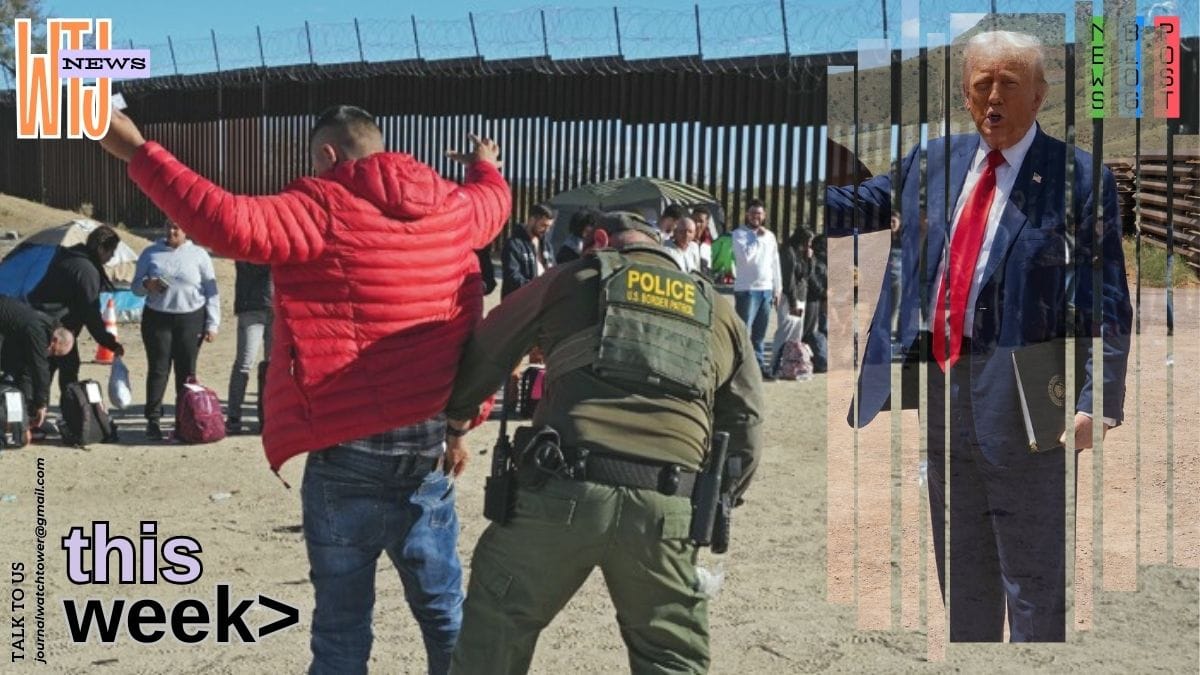In a dramatic escalation of rhetoric and policy pronouncements, Donald Trump, the president-elect of the United States, has hinted at plans to declare a national emergency to facilitate mass deportations of undocumented immigrants. Trump’s comments, shared on his social media platform Truth Social, have ignited widespread debate about the potential use of military power in enforcing immigration policies. The statement has raised significant questions about legality, governance, and the potential consequences for the nation.
The Controversial Proposal: What Trump Said
Donald Trump responded with a resounding “TRUE” to a post by Tom Fitton, the president of Judicial Watch, suggesting the incoming administration is preparing to declare a national emergency. Fitton’s post outlined plans for using military assets to execute a mass deportation program targeting what he described as “the Biden invasion.”
This declaration represents a significant pivot in Trump’s immigration agenda, which has always been a cornerstone of his political platform. During his 2024 campaign, he frequently promised to take a hard-line approach to border security, but the use of the military to carry out deportations introduces a new and controversial dimension.
By invoking a national emergency, Trump aims to bypass certain legal and bureaucratic hurdles, allowing him to tap into expanded executive powers. Historically, such emergency declarations have been reserved for crises like natural disasters or terrorist attacks, making the proposed use in this context both unprecedented and contentious.
The Legal and Constitutional Debate
The prospect of deploying the military for domestic law enforcement raises immediate constitutional questions. The Posse Comitatus Act of 1878 restricts the use of federal troops in civilian law enforcement activities unless expressly authorized by Congress. Critics argue that using the military in this capacity could lead to legal challenges, further polarizing an already divided nation.
Supporters’ Perspective
Trump’s supporters argue that mass deportations are necessary to restore what they perceive as a secure border and to combat illegal immigration, which they claim places undue strain on resources and undermines law and order. Conservative voices, including Judicial Watch, frame the move as a decisive step to reverse what they describe as years of leniency under the Biden administration.
Opposition and Concerns
Opponents, however, warn of dire consequences. Human rights organizations have expressed alarm at the humanitarian impact of such mass deportations, particularly when carried out under military oversight. Legal scholars worry about the potential erosion of democratic norms and the precedent it might set for future administrations.
The Broader Political Landscape
Trump’s announcement comes amid a flurry of activity as his administration begins to take shape.
Florida Senator Marco Rubio’s Expected Resignation
In related news, Florida Governor Ron DeSantis announced that Senator Marco Rubio is anticipated to resign from the Senate to serve as Secretary of State in the Trump administration. This development has sparked intense speculation about Rubio’s successor, with DeSantis confirming that the selection process is underway.
Cabinet Appointments and Infighting
The Trump transition team faces internal clashes over key appointments. Linda McMahon is reportedly set to lead the Department of Commerce, while Brendan Carr has been named to head the FCC. Meanwhile, speculation continues over who will be tapped as Treasury Secretary, highlighting the challenges of consolidating power within the administration.
Potential Impacts of Mass Deportations
The proposed mass deportations carry far-reaching implications for the United States:
1. Social and Economic Fallout
Mass deportations could disrupt communities, break up families, and leave a significant economic void. Many undocumented immigrants are integral to industries like agriculture, construction, and hospitality, where labor shortages could exacerbate economic challenges.
2. Diplomatic Relations
Such aggressive actions could strain relations with neighboring countries, particularly Mexico and Central American nations, which would bear the brunt of repatriation efforts. Diplomatic tensions might also spill over into trade and security collaborations.
3. Precedent for Executive Overreach
Declaring a national emergency to justify these actions raises concerns about the balance of power between the executive branch and Congress. Critics fear this could pave the way for future administrations to wield emergency powers in controversial and potentially undemocratic ways.
Public Reaction and Media Coverage
The proposal has sparked intense reactions across the political spectrum. While Trump’s base has rallied behind the move, praising it as a bold solution to illegal immigration, protests have erupted in cities nationwide, with activists condemning the plan as a violation of human rights and democratic principles.
Media outlets have provided extensive coverage, with conservative networks emphasizing the urgency of border control and liberal commentators warning of authoritarian overreach.
What Do You Think?
This contentious proposal demands careful consideration and public discourse. What are your thoughts on Trump’s plan to use the military for mass deportations?
- Should the government prioritize national security over constitutional concerns?
- What alternative solutions could address illegal immigration without resorting to extreme measures?
- How should the nation balance humanitarian obligations with enforcement of immigration laws?
We invite you to share your opinions in the comments below. Your perspectives are vital in shaping the ongoing debate on this critical issue.
Conclusion: A Defining Moment for American Governance
Donald Trump’s suggestion to invoke a national emergency and deploy military assets for mass deportations represents a pivotal moment in U.S. politics. The proposal underscores the profound divisions within the country, challenging citizens, lawmakers, and institutions to navigate complex legal, ethical, and practical considerations.
As Trump prepares to take office, the nation stands at a crossroads. How these policies unfold will not only define his presidency but also shape America’s trajectory for years to come.
Let us know your thoughts, concerns, and suggestions in the comments. Join the conversation and contribute to this crucial dialogue on the future of America.




